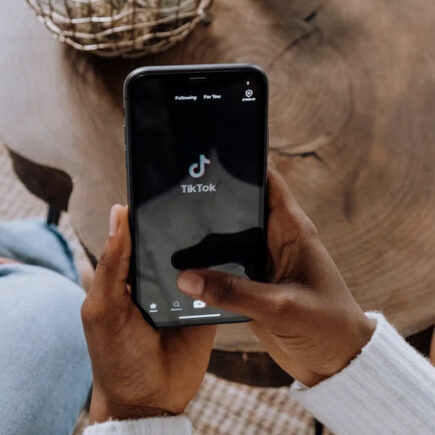In a world driven by technology, online background checks have become increasingly popular. Whether you’re hiring a new employee or simply curious about someone, the convenience of just a few clicks can be tempting. However, many misconceptions surround this powerful tool. Are they really as reliable and comprehensive as people claim? Or do these searches come with hidden pitfalls? Let’s dive into the truth behind online background checks and debunk five common myths that might surprise you.
Online Background Checks Are Always 100% Accurate
Many people believe that online background checks are infallible. The reality, however, is quite different. While these services can provide valuable information, they often come with limitations. Data accuracy largely depends on the sources used for gathering information. Some databases may be outdated or incomplete. Errors can occur in the records themselves, leading to misleading results. Additionally, not all public records are digitized or accessible online. This means crucial details could be missing from a report. Relying solely on an online check without further verification can lead to misguided decisions.
Background Checks Violate Privacy
Many people worry that background checks invade their privacy. It’s a common misconception that any search online can reveal everything about someone without their consent. In reality, most legitimate services follow strict guidelines to protect individual rights. They operate under laws designed to balance safety and privacy. For example, many states require employers to obtain permission before conducting a background check. This ensures individuals are aware of the process and can prepare if needed. Additionally, reputable platforms use only public records or data from trusted sources. Sensitive information is often excluded to maintain confidentiality.

Online Background Checks Are Only for Employers
Many believe that online background checks are exclusively for employers. This is a common misconception. Individuals can also benefit from these services. Whether you’re hiring a babysitter, dating someone new, or even moving into a shared living situation, knowing more about someone’s background can provide peace of mind. Friends and family often want to ensure their loved ones are safe. Conducting an online check allows you to gather information before making important decisions. Moreover, landlords frequently use background checks when renting properties. They need assurance that tenants will be reliable and responsible.
You Need Consent to Run Any Background Check
Many believe that you need explicit consent for every background check. While it’s true in many cases, the rules vary significantly depending on the context. For employers, obtaining written permission is often required before conducting a thorough check. This protects candidates’ rights and ensures transparency during the hiring process. However, personal checks among friends or family don’t have strict legal requirements. People casually search online for information about others without needing formal approval. It’s essential to understand the nuances of consent laws. Different states may have varying regulations regarding what is permissible when checking someone’s background.
Online Checks Reveal Everything About a Person
Many believe that online background checks provide an all-encompassing view of a person’s life. In reality, that’s far from the truth. While these checks can offer insights into criminal records, employment history, and education verification, they often miss critical context. Personal stories and motivations are absent in raw data. Moreover, not every piece of information is available online. Some records may be sealed or simply not digitized yet. This means important chapters might remain hidden from view. Additionally, interpreting the results requires caution. Misunderstandings can arise when data is taken at face value without understanding individual circumstances.
Conclusion
Understanding the realities of online background checks is key to making informed decisions. While these checks can offer useful information, their accuracy depends on data sources and update frequency, and they do not capture every detail about a person. Privacy concerns should be balanced with the benefits of transparency, and although consent is sometimes required, it’s wise to seek permission when possible. Online background checks are valuable tools not just …














 One of the primary reasons companies use online background checks is to verify the information provided by candidates on their resumes and applications. It’s an essential step in confirming the accuracy of a candidate’s education, employment history, and professional certifications. By cross-referencing this information with online databases, companies can make more informed decisions about a candidate’s qualifications.
One of the primary reasons companies use online background checks is to verify the information provided by candidates on their resumes and applications. It’s an essential step in confirming the accuracy of a candidate’s education, employment history, and professional certifications. By cross-referencing this information with online databases, companies can make more informed decisions about a candidate’s qualifications.

 When it comes to camping, choosing the right location can make or break your trip. First, you should consider whether you want to camp in a designated campground or go off the beaten path and find a more secluded spot. If you choose a designated campground, research beforehand to ensure that it fits your needs and preferences. Some campgrounds offer amenities such as showers, restrooms, and even electricity hookups, while others are more primitive.
When it comes to camping, choosing the right location can make or break your trip. First, you should consider whether you want to camp in a designated campground or go off the beaten path and find a more secluded spot. If you choose a designated campground, research beforehand to ensure that it fits your needs and preferences. Some campgrounds offer amenities such as showers, restrooms, and even electricity hookups, while others are more primitive.




 Finally, ensure the website offers a guarantee of some kind so that if there is an issue with the followers you purchase, you can get your money back. This is important to ensure that you are not wasting your money on a website that does not provide the quality of followers you were expecting.
Finally, ensure the website offers a guarantee of some kind so that if there is an issue with the followers you purchase, you can get your money back. This is important to ensure that you are not wasting your money on a website that does not provide the quality of followers you were expecting.
 One of the best places to find real psychics online is Keen Psychics. This website offers readings from some of the most gifted psychic advisors in the world. You can choose from various reading types, and you can even filter your search by advisor type. With so many options, you’re sure to find the right psychic for you. To get started, create an account and browse the psychic profiles. Once you’ve found someone you’d like to connect with, you can request a reading.
One of the best places to find real psychics online is Keen Psychics. This website offers readings from some of the most gifted psychic advisors in the world. You can choose from various reading types, and you can even filter your search by advisor type. With so many options, you’re sure to find the right psychic for you. To get started, create an account and browse the psychic profiles. Once you’ve found someone you’d like to connect with, you can request a reading. Psychic Source is one of the oldest and most respected psychic networks today. Psychic Source has a rigorous screening process for their psychics, including a background check, an interview, and a test reading. This ensures that only the most gifted and accurate psychics are allowed to work for Psychic Source. You can be sure that any psychic you speak to on Psychic Source is the real deal. If you’re looking for a reading from a truly gifted psychic, Psychic Source is the place to go.
Psychic Source is one of the oldest and most respected psychic networks today. Psychic Source has a rigorous screening process for their psychics, including a background check, an interview, and a test reading. This ensures that only the most gifted and accurate psychics are allowed to work for Psychic Source. You can be sure that any psychic you speak to on Psychic Source is the real deal. If you’re looking for a reading from a truly gifted psychic, Psychic Source is the place to go. If you’re looking for a real psychic, MysticSense is the place to go. With over 20 years of experience, they have been connecting people with loved ones who have passed away. They also offer readings on relationships, careers, and more. You can schedule a reading by phone or chat, and they also have an app that you can use to book readings and track your progress. The readings are always accurate and helpful, and the customer service is top-notch.
If you’re looking for a real psychic, MysticSense is the place to go. With over 20 years of experience, they have been connecting people with loved ones who have passed away. They also offer readings on relationships, careers, and more. You can schedule a reading by phone or chat, and they also have an app that you can use to book readings and track your progress. The readings are always accurate and helpful, and the customer service is top-notch.
 After picking the right time for your trip, the next step is to ensure you have all the necessary gear. First and foremost, you’ll need a good beach bag. I like to bring one large enough to fit all my beach essentials but not so big that it’s cumbersome to carry. In addition to sunscreen and sunglasses, I always pack a few snacks, a beach towel, and a change of clothes in my bag. I also like to bring along a small first-aid kit, just in case.
After picking the right time for your trip, the next step is to ensure you have all the necessary gear. First and foremost, you’ll need a good beach bag. I like to bring one large enough to fit all my beach essentials but not so big that it’s cumbersome to carry. In addition to sunscreen and sunglasses, I always pack a few snacks, a beach towel, and a change of clothes in my bag. I also like to bring along a small first-aid kit, just in case.





 In small businesses, finance is always an issue. However, the cards are a cost-effective option. They are even cheaper when you get them printed in bulk, as you obtain a marketing tool that gives value for money. It is necessary to hire the right commercial printer when processing the business card. Unless when very necessary, you should avoid printing your cards. The quality will not be the same as that of a reputable printing company.
In small businesses, finance is always an issue. However, the cards are a cost-effective option. They are even cheaper when you get them printed in bulk, as you obtain a marketing tool that gives value for money. It is necessary to hire the right commercial printer when processing the business card. Unless when very necessary, you should avoid printing your cards. The quality will not be the same as that of a reputable printing company. With the cards, you will have control over how it looks or where it goes. You decide on the contents of the card, also the strategy on how to use the cards. Moreover, they are small enough that the recipients can keep them in a wallet. Many people also have special binders or containers where they keep the
With the cards, you will have control over how it looks or where it goes. You decide on the contents of the card, also the strategy on how to use the cards. Moreover, they are small enough that the recipients can keep them in a wallet. Many people also have special binders or containers where they keep the 



 activities are the first chain of hydrocarbons. It will first be necessary to find the location of the
activities are the first chain of hydrocarbons. It will first be necessary to find the location of the 
 Before you decide on buying these cooking tools, it is advisable to understand that they are available in various types and sizes with different components. Ideally, they have a capacity of between two and seven quarts. When you plan to host a dinner party, you will need to consider going for a larger air fryer.
Before you decide on buying these cooking tools, it is advisable to understand that they are available in various types and sizes with different components. Ideally, they have a capacity of between two and seven quarts. When you plan to host a dinner party, you will need to consider going for a larger air fryer. To ensure that you make an ideal purchasing decision, you need to take your time and go through customer reviews. They should help you understand the top-rate air fryers that can suit you. Use reputable websites to gather valuable information that will guide you through the entire purchasing decision.
To ensure that you make an ideal purchasing decision, you need to take your time and go through customer reviews. They should help you understand the top-rate air fryers that can suit you. Use reputable websites to gather valuable information that will guide you through the entire purchasing decision.
 Through regular exercise with a pump, the elasticity of tissues and blood vessels will improve. This is especially important for middle-aged men to avoid facing a problem such as an insufficiently hard penis ahead of time. Many men, even young men, at the first intercourse after a long break in sex, face an unpleasant problem – the penis is not hard enough or falls off altogether. It goes away after how a man restores the regularity of sexual intercourse, but very few people will like going through such a “first time.”
Through regular exercise with a pump, the elasticity of tissues and blood vessels will improve. This is especially important for middle-aged men to avoid facing a problem such as an insufficiently hard penis ahead of time. Many men, even young men, at the first intercourse after a long break in sex, face an unpleasant problem – the penis is not hard enough or falls off altogether. It goes away after how a man restores the regularity of sexual intercourse, but very few people will like going through such a “first time.” have a trading platform downloaded. If you don’t have it yet, you can download some free options that are available online. Understand how a specific
have a trading platform downloaded. If you don’t have it yet, you can download some free options that are available online. Understand how a specific  a trader has the opportunity to make a profit through movements in oil prices. You can buy oil and sell it at a higher price (this is called a long position) or sell the oil CFD, selling at a higher price and then buying at a lower price (this is called a short position). Decision support tools like technical analysis and fundamental analysis can be used in this case. The goal of these methods is to increase your chances of success and your ability to make a profit. But keep in mind that each transaction can end in a profit or a loss. The result of an oil CFD trade is never guaranteed, like any other CFD. How about you try investing in oil to enjoy the benefits.…
a trader has the opportunity to make a profit through movements in oil prices. You can buy oil and sell it at a higher price (this is called a long position) or sell the oil CFD, selling at a higher price and then buying at a lower price (this is called a short position). Decision support tools like technical analysis and fundamental analysis can be used in this case. The goal of these methods is to increase your chances of success and your ability to make a profit. But keep in mind that each transaction can end in a profit or a loss. The result of an oil CFD trade is never guaranteed, like any other CFD. How about you try investing in oil to enjoy the benefits.…
 Slows Down Climate Change
Slows Down Climate Change Sustainable energy uses solar, wind, hydropower, geothermal, and ocean power to produce energy. These earth’s resources cannot be depleted, and using them to produce energy does not emit greenhouse gases. While there may be no substitute for fossil fuel in some aspects, the use of sustainable energy in all possible ways will not deplete our oil, coal, and natural gas easily. This will ensure that future generations have something for activities where sustainable energy cannot be used efficiently.
Sustainable energy uses solar, wind, hydropower, geothermal, and ocean power to produce energy. These earth’s resources cannot be depleted, and using them to produce energy does not emit greenhouse gases. While there may be no substitute for fossil fuel in some aspects, the use of sustainable energy in all possible ways will not deplete our oil, coal, and natural gas easily. This will ensure that future generations have something for activities where sustainable energy cannot be used efficiently. Because supply is inexhaustible and can be found the world over, the production of
Because supply is inexhaustible and can be found the world over, the production of 
 Makes You More Aware of Your Surroundings
Makes You More Aware of Your Surroundings



 Running a business is an easy task, whether small or big. As a business owner, you might find it challenging to deal with all the documents and lawsuits that your business will get regularly. You may need to focus on the sent document, which may affect your productivity at work. You are required to invest a lot of your time that would have been used to do something prolific. By hiring a registered agent service provider, you can focus on growing and achieving your business ambitions. They will receive documents on behalf of the business.
Running a business is an easy task, whether small or big. As a business owner, you might find it challenging to deal with all the documents and lawsuits that your business will get regularly. You may need to focus on the sent document, which may affect your productivity at work. You are required to invest a lot of your time that would have been used to do something prolific. By hiring a registered agent service provider, you can focus on growing and achieving your business ambitions. They will receive documents on behalf of the business. As stated before, businesses must follow a set of rules and regulations depending on the country or state they are located in. For any enterprise to succeed, it needs to comply with all the issued laws and regulations.
As stated before, businesses must follow a set of rules and regulations depending on the country or state they are located in. For any enterprise to succeed, it needs to comply with all the issued laws and regulations. For a business to succeed, it needs to create the right image for its customers and clients. Most of the time, served notices are brought to the business premises by law enforcement; this can create a wrong impression for a given enterprise and make the matter public. Having a registered agent service provider means that a business will get the receipt for lawsuits in private.
For a business to succeed, it needs to create the right image for its customers and clients. Most of the time, served notices are brought to the business premises by law enforcement; this can create a wrong impression for a given enterprise and make the matter public. Having a registered agent service provider means that a business will get the receipt for lawsuits in private.

 Fuel efficiency is critical for various vital reasons. For what it’s worth, it’s better for the ecosystem when you choose an efficient motor. You utilize less fuel and minimize your carbon footprint. Your vessel’s total span is the size of the fuel unit in gallons multiplied by the distance covered per gallon; this way, the motor enables you to go farther before refueling.
Fuel efficiency is critical for various vital reasons. For what it’s worth, it’s better for the ecosystem when you choose an efficient motor. You utilize less fuel and minimize your carbon footprint. Your vessel’s total span is the size of the fuel unit in gallons multiplied by the distance covered per gallon; this way, the motor enables you to go farther before refueling.











 Backpacks come in a variety of features. If you get to understand some of these features, then it will be easy for you to get yourself the best backpack. Some of the features that your pack has to have include hip belt, internal frame, should harness, compression straps, sleeping bag compartment, and it should also be water-resistant. These are the features that will make it possible for you to enjoy using the backpack.
Backpacks come in a variety of features. If you get to understand some of these features, then it will be easy for you to get yourself the best backpack. Some of the features that your pack has to have include hip belt, internal frame, should harness, compression straps, sleeping bag compartment, and it should also be water-resistant. These are the features that will make it possible for you to enjoy using the backpack.
 The good thing about graphics is that they aid your individual spin on the involvement with the sport and it is available in the form of motocross stickers. It does not matter whether you are involved in the sport for pleasure for business; a customized sticker can help you develop your identity in this growing sport. If you are fond of recreational aspects of motocross, then you should look into the idea of using motocross stickers. Whenever you find trailers or courses to travel, it is easier to find riders that use the same location. Other than being a pleasure seeker with a dirt bike, you should look like a professional with a custom dirt bike graphics.
The good thing about graphics is that they aid your individual spin on the involvement with the sport and it is available in the form of motocross stickers. It does not matter whether you are involved in the sport for pleasure for business; a customized sticker can help you develop your identity in this growing sport. If you are fond of recreational aspects of motocross, then you should look into the idea of using motocross stickers. Whenever you find trailers or courses to travel, it is easier to find riders that use the same location. Other than being a pleasure seeker with a dirt bike, you should look like a professional with a custom dirt bike graphics. If you are riding your dirt bike for recreational purposes, the opportunity that surrounds custom motorbike stickers is quite unique. However, if you are a professional rider, then custom dirt bike graphics are a must. That is because a professional is required to consider the activity as both a sport and a business endeavor. If you need to dedicate your life to the pursuit of a motocross career, then you need sponsors and skill. Remember that sponsors are attracted to individuals who win and persons who are recognizable.
If you are riding your dirt bike for recreational purposes, the opportunity that surrounds custom motorbike stickers is quite unique. However, if you are a professional rider, then custom dirt bike graphics are a must. That is because a professional is required to consider the activity as both a sport and a business endeavor. If you need to dedicate your life to the pursuit of a motocross career, then you need sponsors and skill. Remember that sponsors are attracted to individuals who win and persons who are recognizable.


 You should choose your facility based on convenience and safety. Look for a safer neighborhood. Check whether the property is fully fenced and has restricted access that reflects minimum safety features the unit should provide. For instance, it should provide 24-hour video surveillance and coded security pads and strategically placed cameras throughout the building. All of these are important safety measures. Take time to call and interview managers of storage facilities.
You should choose your facility based on convenience and safety. Look for a safer neighborhood. Check whether the property is fully fenced and has restricted access that reflects minimum safety features the unit should provide. For instance, it should provide 24-hour video surveillance and coded security pads and strategically placed cameras throughout the building. All of these are important safety measures. Take time to call and interview managers of storage facilities.


